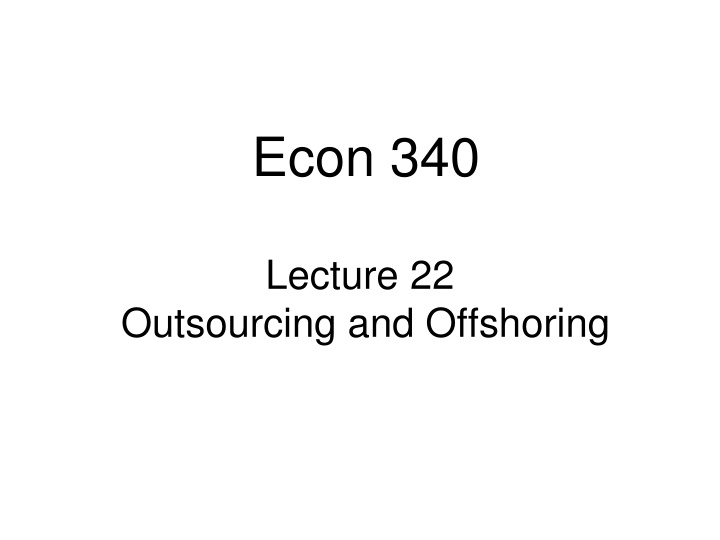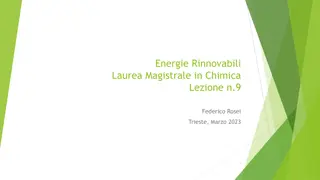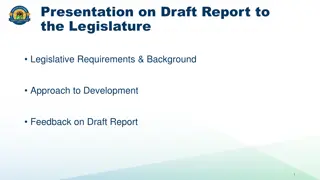Mitchell Daysh Geothermal Expertise and Experience
Mitchell Daysh is a prominent consulting firm with a focus on geothermal energy projects. Their services include environmental planning, resource assessment, impact assessments, permitting, and policy development. With a team of experienced professionals, they have worked on various geothermal projects in New Zealand and internationally.
Download Presentation

Please find below an Image/Link to download the presentation.
The content on the website is provided AS IS for your information and personal use only. It may not be sold, licensed, or shared on other websites without obtaining consent from the author.If you encounter any issues during the download, it is possible that the publisher has removed the file from their server.
You are allowed to download the files provided on this website for personal or commercial use, subject to the condition that they are used lawfully. All files are the property of their respective owners.
The content on the website is provided AS IS for your information and personal use only. It may not be sold, licensed, or shared on other websites without obtaining consent from the author.
E N D
Presentation Transcript
Econ 340 Lecture 22 Outsourcing and Offshoring
Outline: Outsourcing and Offshoring Definitions of OS Causes of OS Effects of OS Facts about OS Policies Econ 340, Deardorff, Lecture 22: Outsourcing & Offshoring 2
Definitions Outsourcing = Movement of an activity to outside of firm (Not necessarily outside country) Offshoring = Movement of an activity to outside of country (Not necessarily outside firm) Could be Subsidiary abroad (FDI) Subcontracting with another firm Arm s-length trade Often refers to services Sometimes called trade in tasks Econ 340, Deardorff, Lecture 22: Outsourcing & Offshoring 3
Definitions Both could be called: OS = OutSourcing / OffShoring I ll use OS here to refer only to OffShoring, since that s the one that is clearly international Econ 340, Deardorff, Lecture 22: Outsourcing & Offshoring 4
Outline: Outsourcing and Offshoring Definitions of OS Causes of OS Effects of OS Facts about OS Policies Econ 340, Deardorff, Lecture 22: Outsourcing & Offshoring 5
Causes of OS Blinder identifies two causes of the increase in OS over recent decades: New technologies Information Communication Entry of new populations into world economy China India Former Soviet states These make OS possible for jobs that can be done at a distance Econ 340, Deardorff, Lecture 22: Outsourcing & Offshoring 6
Causes of OS Otherwise, causes of OS are same as causes of other trade Activities are offshored if they can be done more cheaply elsewhere Thus OS occurs due to Comparative Advantage Due to technology differences Due to factor-endowment differences Economies of Scale Econ 340, Deardorff, Lecture 22: Outsourcing & Offshoring 7
Outline: Outsourcing and Offshoring Definitions of OS Causes of OS Effects of OS Facts about OS Policies Econ 340, Deardorff, Lecture 22: Outsourcing & Offshoring 8
Effects of OS Disagreements Bivens (not assigned), like other trade skeptics, is largely negative He defines offshoring as substituting foreign for domestic labor Many mainstream trade economists see offshoring as ordinary trade are largely positive Blinder (a very well-respected macro economist) sees OS as beneficial overall but worries about effects on US labor Econ 340, Deardorff, Lecture 22: Outsourcing & Offshoring 9
Effects of OS Effects that are Like trade: All of the effects of trade that we have studied, are valid for this. OS is trade. Thus Countries as a whole gain, due to comparative advantage, economies of scale, etc. Some people within the countries lose especially those whose jobs are lost Theory says that scarce factors are hurt by trade, and thus also by offshoring. Econ 340, Deardorff, Lecture 22: Outsourcing & Offshoring 10
Effects of OS Effects that are Unlike trade i.e., effects that don t occur with other trade, or at least weren t mentioned Increased insecurity: workers feel more threatened New groups (white collar, in high-income countries) are seeing the threat Employers can move jobs ; workers can t Thus employers gain in bargaining over wages Econ 340, Deardorff, Lecture 22: Outsourcing & Offshoring 11
Effects of OS Effects that are Unlike trade (Possible) loss of technological advantage Poor countries acquire the knowledge that rich countries previously had exclusively. Thus Poor countries become more productive Their incomes rise Therefore OS helps economic development Econ 340, Deardorff, Lecture 22: Outsourcing & Offshoring 12
Effects of OS Effects that are Unlike trade (Possible) loss of technological advantage Terms of trade of rich countries worsen, costing them some of their gains from trade Thus rich countries may lose from the loss of exclusive technologies due to OS But what they are losing are the gains from trade. Refusing to trade would only make things worse. Econ 340, Deardorff, Lecture 22: Outsourcing & Offshoring 13
Effects of OS OS from US may create jobs in US OS can make a firm or industry viable that would not have been viable without OS Example: US software company, IMC. (IMC = Information Management Consultants. Makes software to exploit human genome research.) Became viable only with coding done in India. Later it employed six engineers in the US for every one in India. Econ 340, Deardorff, Lecture 22: Outsourcing & Offshoring 14
Effects of OS OS raises productivity (see Amiti and Wei) They estimated the causes of US productivity growth over 1992-2000 11% of it was due to service offshoring Only 3-6% was due to imported material inputs Why the gain? Because firms choose to offshore the less efficient parts of what they do. Econ 340, Deardorff, Lecture 22: Outsourcing & Offshoring 15
Effects of OS OS threatens some occupations more than others (see Blinder s examples) Offshorable Not offshorable electronic service personal service jobs tax accounting onsite auditing computer programming computer repair architects builders radiology pediatrics and geriatrics lawyers who write contracts litigators who argue cases in court Econ 340, Deardorff, Lecture 22: Outsourcing & Offshoring 16
Outline: Outsourcing and Offshoring Definitions of OS Causes of OS Effects of OS Facts about OS Policies Econ 340, Deardorff, Lecture 22: Outsourcing & Offshoring 17
Facts about OS Blinder estimates that 30-40 million US jobs are potentially offshorable. Compare to civilian employment in Jun 2008: 145.9 million So Blinder is estimating that up to a quarter of US employment is potentially threatened by offshoring Thus it rattles him Econ 340, Deardorff, Lecture 22: Outsourcing & Offshoring 18
Facts about OS But the actual amount is still relatively small Brainard and Litan say OS accounts for only 2% of those who involuntarily lose their jobs. (It would be a much smaller share of all job turnover) But they were writing in 2004 One more recent source, though critical of OS, seems to give an even smaller estimate. Econ 340, Deardorff, Lecture 22: Outsourcing & Offshoring 19
Facts about OS Another source, also critical of offshoring, shows the chart on the next slide Their point is that a lot of US imports (about 50%) is related party trade, and thus OS But the chart does not show much growth since the data of Brainard and Litan Econ 340, Deardorff, Lecture 22: Outsourcing & Offshoring 20
Facts about OS Econ 340, Deardorff, Lecture 22: Outsourcing & Offshoring 21
Facts about OS OS is moving into services There are flows in both directions Flows out of US are mostly low value jobs So far. But Blinder worries & sees threats to higher value jobs Econ 340, Deardorff, Lecture 22: Outsourcing & Offshoring 22
Facts about OS Brainard and Litan say OS is not shifting the proportion of incomes more towards profits See graph below Econ 340, Deardorff, Lecture 22: Outsourcing & Offshoring 23
Econ 340, Deardorff, Lecture 22: Outsourcing & Offshoring 24
Facts about OS Brainard and Litan say OS is not shifting the proportion of incomes more towards profits See graph below Other data (below) show that labor s share Has declined in recent decades Increased in the crisis, as profits fell Then fell in recession Econ 340, Deardorff, Lecture 22: Outsourcing & Offshoring 25
Adjusted labour income share in developed G20 countries, 1991 2013 68 Adjusted labour income share (%) 64 United Kingdom 60 Japan France Germany United States Canada 56 Italy Australia 52 1991 1992 1993 1994 1995 1997 1998 1999 2001 2002 2003 2004 2005 2006 2007 2008 2009 2010 2011 2012 2013 1996 2000 Econ 340, Deardorff, Lecture 22: Outsourcing & Offshoring 27
Tom Friedmans View of OS Tom Friedman (author of The World Is Flat) CEOs no longer think of outsourcing (or offshoring) at all, because They don t think of in or out Things are Made in the World They produce anywhere through global supply chains Econ 340, Deardorff, Lecture 22: Outsourcing & Offshoring 28
Tom Friedmans View of OS Friedman thinks the US has advantages that will let us prosper in this new world: protection for intellectual property secure capital markets government funding for science strength in logistics (FedEx, UPS) Econ 340, Deardorff, Lecture 22: Outsourcing & Offshoring 29
Facts about OS Recently, some offshoring has been reversing (see Economist): Some companies are bringing operations back to the US Called reshoring Econ 340, Deardorff, Lecture 22: Outsourcing & Offshoring 30
Facts about OS Examples of reshoring General Electric has returned production of fridges, washing machines and heaters from China back to Kentucky. Lenovo is starting to make PCs in North Carolina GM is shifting its IT back to Detroit Apple is making some Macs in the US Econ 340, Deardorff, Lecture 22: Outsourcing & Offshoring 31
Facts about OS Reasons for reshoring China s cost advantage is shrinking due to Rising wages Appreciating currency (until recently) Increased use of automation (robots) has reduced reliance on labor Production abroad is increasingly to serve foreign markets, not to export back to US Econ 340, Deardorff, Lecture 22: Outsourcing & Offshoring 32
Facts about OS Most recently see Schuman NYT 2016 While US did lose jobs to China before 2011, now China itself is losing jobs: Due to its slowing economy To Its neighbors Back to the US Econ 340, Deardorff, Lecture 22: Outsourcing & Offshoring 33
Facts about OS Most recently see Schuman NYT 2016 While US did lose jobs to China before 2011, now China itself is losing jobs Why? Wages in China are 29% higher than 3 years ago Wages are lower in Vietnam (1/2) Bangladesh (1/4) Costs in China are now about the same as in US Econ 340, Deardorff, Lecture 22: Outsourcing & Offshoring 34
Facts about OS Most recently see Schuman NYT 2016 While US did lose jobs to China before 2011, now China itself is losing jobs Why? Where are jobs from China going? To neighboring low-wage countries Back to US: Survey found 24% of US manufacturers reshoring or planning to Apple s manufacturer, Foxconn, is building 12 new factories in India Econ 340, Deardorff, Lecture 22: Outsourcing & Offshoring 35
Outline: Outsourcing and Offshoring Definitions of OS Causes of OS Effects of OS Facts about OS Policies Econ 340, Deardorff, Lecture 22: Outsourcing & Offshoring 36
Policies Suggested for OS Get more data Expand adjustment assistance Invest more in education Require transparency by publicly owned firms. Remove artificial (i.e., tax) incentives that encourage OS. Econ 340, Deardorff, Lecture 22: Outsourcing & Offshoring 37
Policies Suggested for OS Trump: Provide tax incentives to keep production here (as done in fall 2016 for Carrier) Threaten a tax on exports back to US from OS factories Good ideas? NO! Econ 340, Deardorff, Lecture 22: Outsourcing & Offshoring 38
A final note on Outsourcing http://www.youtube.com/watch?v=rYaZ57Bn4pQ Econ 340, Deardorff, Lecture 23: Environment, Labor 39
Next Time (Last Lecture; Next-to-Last Class) Environment, Labor Standards, and Trade The Issues Environment Examples Policies International Problems Role of the WTO Labor Standards Fundamental ILO Conventions United States Role Issues Econ 340, Deardorff, Lecture 22: Outsourcing & Offshoring 40























